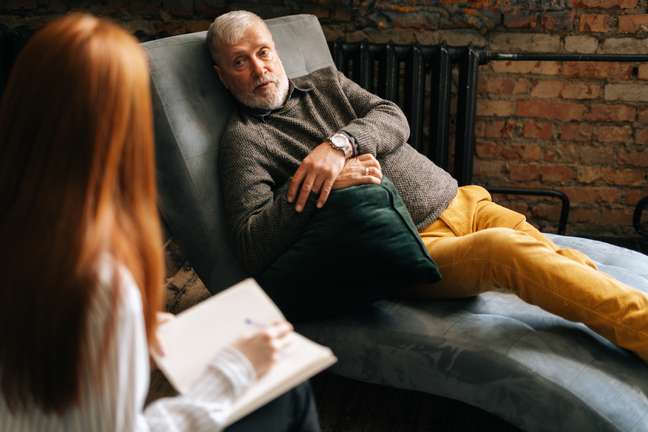The psychiatrist explains what it is and how to identify the disorder that affects about 10% of Brazilians
Anxiety crises, or anxiety disorder, are present in the daily life of many people. They are usually related to expectations and worries in difficult and unfamiliar situations. Although anxiety is a natural reaction of the body, it is necessary to understand when it becomes pathological and thus identify the signs. Therefore, Flávia Schueler, psychiatrist and director of SIG Residency Therapeutic, explains what the symptoms of the disease are and how to control seizures. Watch!

How to identify an anxiety attack?
anxiety disorders, according to the World Health Organization (WHO), they are diseases related to the functioning of the body and life experiences. Characterized by the peak moment of symptoms, anxiety attacks can come on suddenly, for no apparent reason, because the sympathetic nervous system is activated.
Symptoms of anxiety attacks can be difficult to identify, such as physical manifestations they are also often confused with the symptoms of a heart attack, especially by those who have never had a seizure before, as psychiatrist Flávia Schueler explains.
“Many times the patient or his immediate family do not immediately realize that it is an anxiety crisis. […] Therefore, the evaluation of a professional is essential for the correct diagnosis and the indication of the treatment accordingly “, explains the specialist.
Symptoms of Anxiety Disorder
According to psychiatrist Flávia Schueler, the symptoms of an anxiety crisis can vary from person to person, as well as the duration. But among the most common symptoms are:
- Chest pain;
- racing heart;
- Shortness of breath
- tremors;
- Muscle tension;
- Dizziness;
- seasickness;
- intense sweat;
- Fear of dying
- Feeling faint.
Causes of crisis
As the psychiatrist explains, there is no single cause for anxiety attacks. “Anxiety crises can be triggered by intense stress, chronic pain, sleep deprivation, emotional and physical abuse situations, as well as overwork, as in Burnout syndrome,” exemplifies the doctor.
In addition to the reasons mentioned, the specialist also mentions panic disorders. “Her attacks, also called panic attacks, are spontaneous and can be related to excitement, physical exertion or emotional trauma. They last for up to 10 minutes, with escalating symptoms of extreme fear and death associated with the symptoms. Physical symptoms of tachycardia. , palpitations, sweating and dyspnoea “, analyzes the specialist.

How to treat anxiety disorders?
According to psychiatrist Flávia Schueler, looking for the proper treatment with a specialized professional is essential. “Anxiety disorders precede depression, greater in 65% of cases. Other comorbidities are also involved in patients with anxiety disorders, such as: alcohol and substance abuse, agoraphobia and others”, explains the psychiatrist.
According to the World Health Organization (WHO) there are three types of treatments for anxiety disorders, they are:
- Medicines (always accompanied by a doctor);
- Psychotherapy with a psychologist or psychiatrist;
- Combination of the two treatments.
Techniques that can help
Breathing helps keep the body relaxed and prevents the feeling of suffocation. Therefore, practicing breathing exercises can help in these moments. If possible, try to focus your thoughts on a positive memory. “It is necessary to work on thinking to put it into practice. If there is any supportive drug, it is important that the individual in crisis uses it at the time,” explains psychiatrist Flávia Schueler. Trying to relax your muscles can also help at this time.
Source: Terra
Benjamin Smith is a fashion journalist and author at Gossipify, known for his coverage of the latest fashion trends and industry insights. He writes about clothing, shoes, accessories, and runway shows, providing in-depth analysis and unique perspectives. He’s respected for his ability to spot emerging designers and trends, and for providing practical fashion advice to readers.






